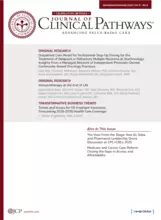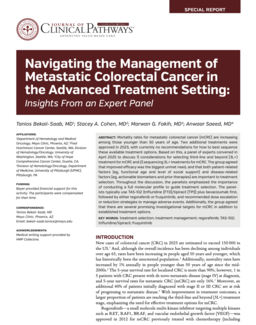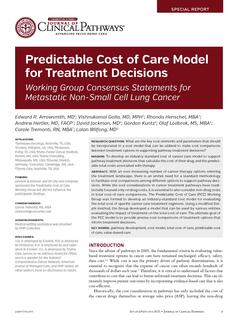Palliative Care Use Rose 24% in Medicare Cancer Decedents, but Disparities Persist
The use of specialty palliative care (PC) among Medicare beneficiaries with poor-prognosis cancers increased significantly between 2018 and 2023, driven by expanded outpatient services, rising telehealth adoption, and a growing role for advanced practice clinicians (APCs), according to a new cohort study of over 1.5 million decedents.
Among all Medicare decedents with poor-prognosis cancers, the proportion receiving at least one specialty PC encounter in their final year of life rose from 29.84% in 2018 to 37.21% in 2023—a 24.2% relative increase. Outpatient PC saw the most rapid growth, nearly doubling from 10.66% to 20.56% during the same period.
The study highlights a major shift in how PC is delivered. “Advanced practice specialists were the most common clinician type who delivered specialty PC,” said the authors. APCs accounted for 22.84% of all decedents’ PC in 2023, compared to 15.60% for self-designated PC physicians and 9.92% for other physicians. Telehealth also gained traction: by 2023, 18.2% of outpatient PC encounters were conducted remotely.
Despite these gains, gaps in PC access remain. Decedents who were older, low-income, or living in nonmetropolitan areas were significantly less likely to receive any specialty PC. In 2023, decedents aged 90 years and older were 16.3 percentage points less likely to receive PC than those aged 66 to 69 years. Similarly, those in nonmetropolitan areas were 13.3 percentage points less likely to receive specialty PC than those in urban areas.
Race, gender, and comorbidity also influenced access. Asian decedents were 5.39 percentage points more likely to receive PC than White decedents. Women and patients with multiple chronic conditions were also more likely to access PC services.
While the data reflect significant progress in PC availability—especially in outpatient and telehealth formats—the persistent disparities highlight the need for targeted strategies. “Different strategies are needed to overcome these barriers,” the authors concluded, especially to reach disadvantaged groups that continue to receive less care at the end of life.
Reference
Chua IS, Huskamp HA, Mehrotra A, Wilcock AD. Palliative care specialist use among Medicare decedents who had poor-prognosis cancers. JAMA Netw Open. 2025;8;(7):e2522886. doi:10.1001/jamanetworkopen.2025.22886
















